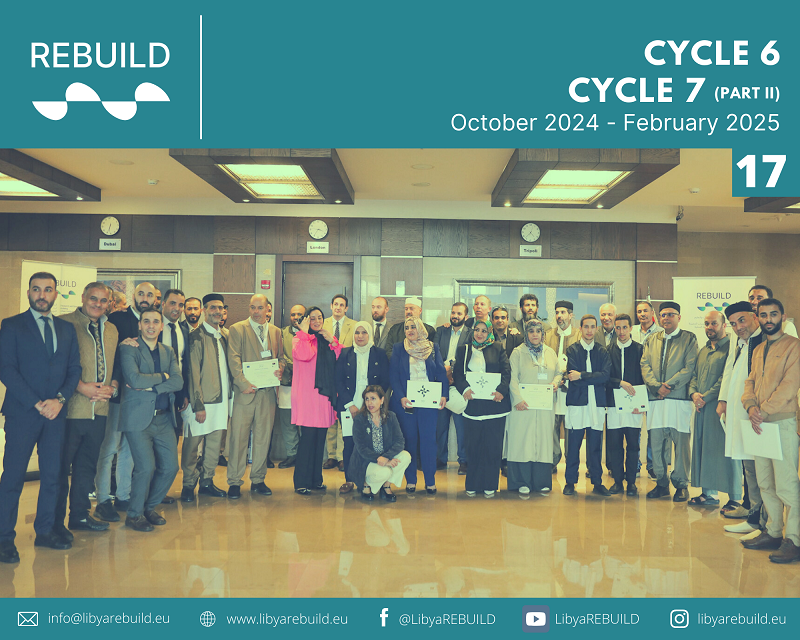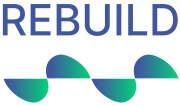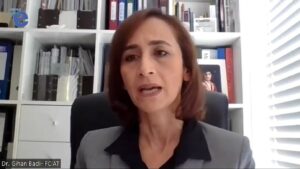—
PART I – Disaster Risk Management (DRM)
This course empowers disaster risk management professionals in Libya to develop effective policies, mobilise resources, and harness technology for disaster mitigation. It specifically addresses responding to post-Derna flooding incidents and is tailored for local authorities,
academics, researchers, and public service professionals. The program provides essential knowledge and skills for proficient disaster risk management.
Interactive learning enhances participants’ understanding of critical issues in disaster risk management, including strategic planning, risk monitoring, efficient resourcing, and equitable delivery coordination. Throughout the training, participants will apply strategic planning tools, leaving them well-prepared to design and implement comprehensive, technology-supported plans that consider long-term trends and sustainability in disaster risk reduction.
This training part includes three thematic modules that are implemented with the pedagogical support of Dr Gihan Badi, PhD, Chartered Architectural Technologist.:
7.1 Understanding Disaster Risk Management Frameworks (June 2024)
7.2 Integrating Disaster Risk Management with Sustainable Development (July 2024)
7.3 Strategies for Enhanced Disaster Risk Management (August 2024)
—
For an overview of the first part in Cycle 7 training activities see the Storyboard nr 14
—
Val di Stava (Trentino, Italy), the testimony of the forensic scientist

—
PART II – Waste Management and Water Management
Waste Management
Effective waste management has become imperative for sustainable development and environmental protection. Municipalities play a crucial role in managing waste efficiently to protect public health and environment.
Training session – The live session covered the basic principles of waste management, treatment and recycling, and discussed the reality and challenges of waste management in Libyan municipalities. The training targeted Municipalities’ staff, with particular focus on decision-makers: general secretary, heads of departments and technicians in charge of waste management at the local level.
Mentoring session – The session contained three main sections: 1. Presentation on “Composting” given by Peter Szerb (Ciedel); 2. Presentation on “Waste to Value Project” by Wafa Attawil (CCI); 3. Intervention by participants about their experiences on waste management in their municipalities
Water Management
Training session – This is the last training module of the whole REBUILD curriculum. It provides municipalities staff with guidance and resources to improve water management at the local level. The topic of this module is related to the REBUILD pilot project on Environmental safety and drinking water quality. The live session covered the basic principles of water management, the challenges of the Sustainable Development Goals regarding access to clean water, the Legislative Framework for municipalities in Libya on water management and the necessary steps for implementing a service within a municipality. The training targeted Municipalities’ staff, with particular focus on decision-makers: general secretary, heads of departments and technicians in charge of water management at the local level.
Mentoring session – The session was attended by the water and environmental sanitation officials in the partner municipalities. The training was carried out by Dr. Iman Al-Harsha, an expert in the field of water management, and Mr. Peter Zerb, the trainer from the Ciedel Center. The session contained 2 main parts: 1. Presentation on various water management strategies and the Water Safety Plan; 2. Presentation of cases and challenges faced by municipalities in sewage networks and drinking water systems.
—
 See Storyboard 17
See Storyboard 17


